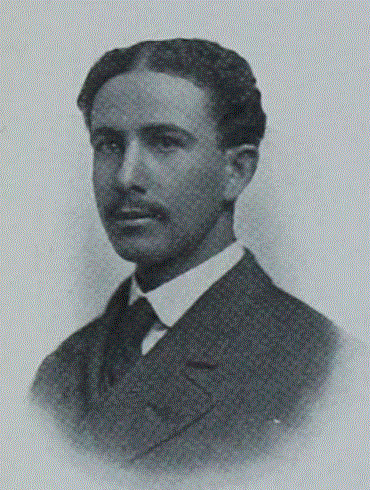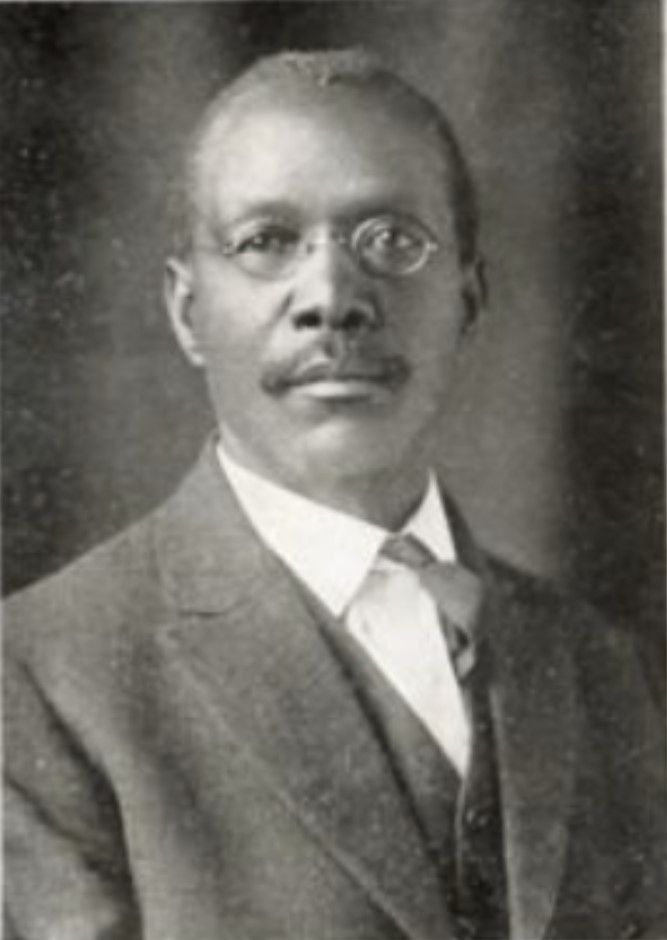Joseph Lionel Shannon was born 15 February 1885 in San Fernando, Trinidad, one of two sons born to Julia Caroline Shabler and Joseph Luther Shannon. The younger Shannon arrived at Ellis Island on 12 August 1905, with $90, having paid his own fare from Barbados to attend school at Iowa State College, where he earned his Doctor of Veterinary Medicine Degree in 1909. Upon immigration, his profession was noted as “clerk” (Ancestry.com, 2010a). While at ISC Shannon was a member of the Veterinary Medicine Society, the Cosmopolitan Club, and Sigma Upsilon Phi. In 1906, he lived in the home of widow Louisa Walters on Boone Street, near what is now the northwest corner of Hayward Avenue. Following graduation, Dr. Shannon stayed in Iowa until 1910, when he returned to Barbados (Ancestry.com, 2010b).
By January 1915, Dr. Shannon had been appointed as the first Government Veterinary Surgeon of St. Kitts, British West Indies, an appointment heralded as “progressive” and indicative of the “importance of scientific veterinary work” by the Agricultural News: A Fortnightly Review of the Imperial Department of Agriculture for the West Indies (1915, p. 24). In the next few years, Shannon traveled between the U.S. and his West Indian home on several occasions. He returned to the United States in 1916 to purchase a thoroughbred racehorse to bring back to St. Kitts (Famous, 1916, p. 9). Then, on 21 January 1917, the Lexington Herald-Leader reported, “Dr. J. Lionel Shannon, of St. Kitts, British West Indies, has been retained by John E. Madden as veterinarian at Hamburg Place” (p. 9). Becoming a vet for Madden, the top breeder in the United States from 1917 to 1927 (Voss, 2022) and the man who bred Sir Barton, the first Triple Crown winner (1920), acknowledged Shannon’s expertise in the field of equine medicine. By 1919, Shannon had returned to the British West Indies, once again employed as a government veterinarian, this time in Trinidad, but he returned to Kentucky on a mission to purchase “fine stock and turkeys for his government for the purposes of breeding” (“Buys,” 1919, p. 5). That same year, he married Grace Constance Marshall in Trindad.
Shannon was still working for the government of Trinidad and Tobago in 1924, when he was employed as the overseer of the government farm, according to The Trinidad and Tobago Year Book (Franklin, 1924). What occurred in Dr. Shannon’s career after that has yet to be discovered in this project’s research. J. Lionel Shannon died in Trinidad in 1963.
Sources
Photo credit: Iowa State University. (1909). 1909 Bomb (p. 92). Retrieved from https://digitalcollections.lib.iastate.edu/islandora/object/isu%3ATheBomb_49215
Ancestry.com. (2010a). New York, U.S., arriving passenger and crew lists (including Castle Garden and Ellis Island), 1820-1957 [database on-line]. Ancestry.com Operations.
Ancestry.com. (2010b) List or manifest of alien passengers for the United States immigration officer at port of arrival. [database on-line]. Ancestry.com Operations.
Buys fine stock. (1919, May 27). The Mt Sterling advocate. p. 5.
Famous Old Pastorella bought by R. T. Wilson, Jr.–other good sales of thoroughbreds in Bluegrass. (1916, Oct. 8). Lexington leader. p. 9
Franklin, C.B., compiler. (1924). The Trinidad and Tobago year book. Franklin’s Electric Printery.
Lexington herald-leader. (1917, Jan. 21). Lexington, Kentucky. p. 9.
Personal notes. (1915, Jan. 16). Agricultural news: A fortnightly review of the Imperial Department of Agriculture for the West Indies, vol.14(332), p. 24.
Voss, Natalie. (2022, Jul. 6). Kentucky farm time capsule: Before Hamburg Place was a shopping center. The back ring. Retrieved 17 February 2023. https://backring.paulickreport.com/kentucky-farm-time-capsule-before-hamburg-place-was-a-shopping-center/

